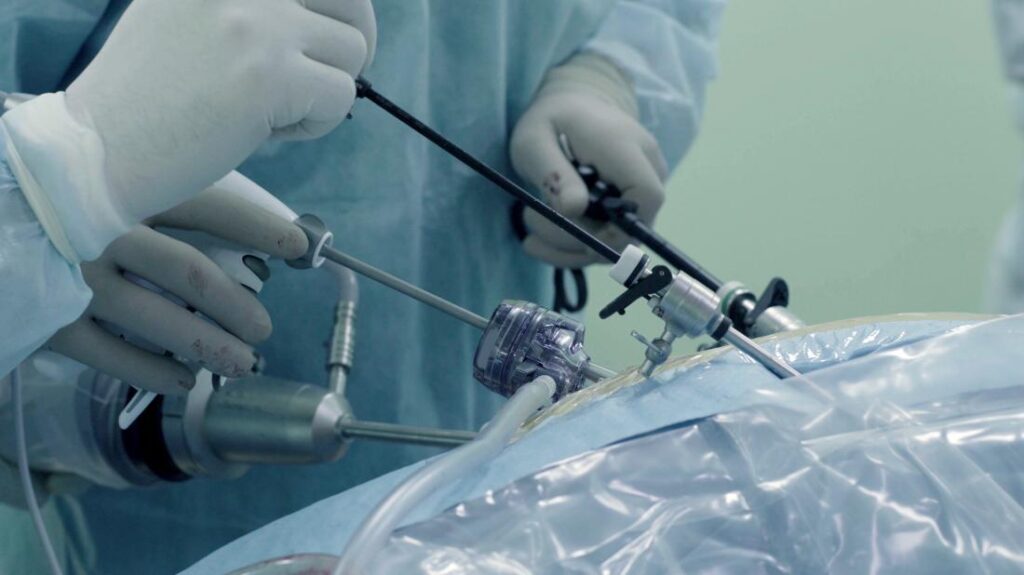Laparoscopy often used as a diagnostic tool, is a low-risk, minimally invasive surgical procedure that is done to examine the inside of the abdomen.
The procedure is done with the help of an instrument called a laparoscope. The healthcare providers insert the laparoscope by giving a small incision into the abdomen.
The instrument has a camera that moves inside the abdominal cavity and gives an inner view. For laparoscopic surgery, you can visit the laparoscopic surgeon in Lahore.
Your healthcare providers can also perform a biopsy during laparoscopy. Through laparoscopy, the healthcare providers can look outside of;
Uterus
Ovaries
Gallbladder
Spleen
Stomach
Fallopian tubes
Liver
Pancreas
Before surgery
Before surgery, your healthcare provider will take your complete history. Make sure you tell them about the medications you have been taking and your disease history. If you are taking blood thinners, such as warfarin or clopidogrel, or anti-inflammatory medications, like ibuprofen or naproxen, they may ask you to leave them some days before the surgery.
Ask your doctor which drugs you should be taking before the surgery and which you should stop. The health care providers will take your complete health history and will give a fitness certificate according to it. If you smoke, try quitting it before surgery as it may help in recovering.
On the day of surgery
Your healthcare providers will ask you to stop eating or drinking 12 hours before surgery. If you have to take drugs, you can take them with a small sip of water. Your healthcare provider will tell you when you have to reach the hospital.
After surgery
After surgery, the soreness or pain at the site of the incision may remain for sometime around 24 to 48 hours. For diagnostic laparoscopy, you may need to stay in the hospital for 24 hours. Post-surgery, you may experience abdominal pain, nausea, increased urination, and cramping. Moreover, you may also have to pass gas because gas is administered during the procedure. Due to excessive gas in your abdomen, you may have a feeling of pressure in your abdomen. For that, walking may help. You may also have pain in the shoulder.
Your bowel movements may also change after surgery. However, most people recover soon after the first few days after surgery.
Recovery after surgery
You will feel better in some days after surgery. But make sure you do not lift, push or pull heavy objects. Ask your healthcare provider when you can get back to normal life. Also, try to abstaining from sexual intercourse until your healthcare provider gives you the green signal.
For internal healing, your body may take 2 weeks. Women may have vaginal bleeding for some days. You do not need to worry about it. That is completely normal. Furthermore, your periods may become heavy and off for some days post-surgery. After four weeks, you may be able to get back to normal.
Diet
You may have an upset stomach for some days after surgery. Therefore you should take bland foods and a low-fat diet such as plain rice, yogurt, toast, grilled or broiled chicken. Also, drink plenty of fluids to keep yourself hydrated. But if you have liver, kidney, or heart disease, ask your healthcare provider about how much fluid intake you can have.
Bowel movement
Your bowel movements may be altered for some days after laparoscopy. You may have constipation. But make sure you do not strain to have a bowel movement. To avoid constipation, you can incorporate fiber supplements into your diet. If you do not pass stool for two to three days, you should consult your healthcare provider if you can take any mild laxative.
Medicines
Your healthcare provider will tell you after how many days you can restart the medications you have stopped before the surgery. They will also tell you which medications you have to take post-operation and for how many days. Most probably, they will prescribe an analgesic to relieve pain and antibiotics to treat or prevent any infection post-operatively.
Do not forget to ask your healthcare provider that after how many days you can restart taking your blood-thinning medications if you take them.
Care of the stitches
Make sure you take care of your stitches after the surgery. Ask your healthcare provider about when you can remove the tape or bandage. Avoid having a bath for one to two weeks. However, you can shower yourself. But make sure that you pat the stitches dry after that. Also, keep an eye on your stitches for any possible signs of infection. If you notice inflammation or pus at the infection site, consult with your healthcare provider.
Conclusion
Laparoscopy is a low-risk, generally safe surgery. It is used for diagnostic as well as treatment purposes. Most commonly, it is used to remove gall stones. Before the procedure, put all your queries in front of your healthcare provider. If you need to get a laparoscopy done, you can visit the laparoscopic surgeon in Islamabad.

